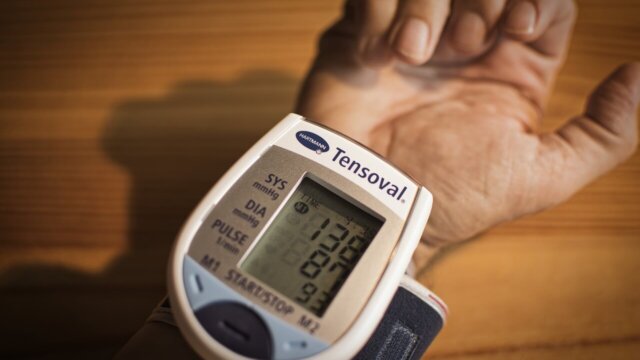FTC disclaimer: This post may contains affiliate links and we will be compensated if you click on a link and make a purchase.
The most recent global estimates from the World Health Organization reveal that 1.9 billion adults are overweight, with at least 650 million adults classified as obese.
Obesity is associated with various conditions such as heart disease, sleep apnea, joint problems, and diabetes.
Diet and exercise are cornerstones of obesity management as less energy in and more energy out promote weight loss.
Research shows that omega-3 fatty acids are beneficial in the conditions listed above and emerging research demonstrates their potential for obesity management and exercise.
What is Fish Oil, Omega-3 Fatty Acid?
An omega-3 fatty acid is an essential fat needed by our body to help build the structure of every cell and keep our lungs, blood vessels, heart, and immune system working properly.
They are mainly divided into three types:
- Alpha-linolenic Acid (ALA)
- Docosahexaenoic Acid (DHA)
- Eicosapentaenoic Acid (EPA)
ALA is mainly found in plant foods like olive oil and flaxseed oil and is considered essential because our body can’t produce it.
Further, you can get DHA and EPA from seafood, algae, and fish oil supplements directly absorbed by your body.
Also, ALA can be converted into DHA and EPA, but the conversion is 2 to 10% depending on several factors, such as the health and genetics of an individual.
Moreover, the study has shown DHA and EPA, especially DHA, contribute to weight loss and obesity.
However, the study has also revealed how fish oil supplements affect the resting metabolic rate and body composition, contributing to weight loss.
Let’s look into some factors where Omega-3 fatty acid helps weight management and obesity.
Improve Satiety and Lose weight
According to research, Omega-3 fatty acids, such as Eicosapentaenoic acid (EPA) and Docosahexaenoic acid (DHA), have improved satiety in overweight and obese volunteers.
Obese women with type-2 diabetes, given a mixture of EPA and DHA for two months, had reduced cardiovascular disease markers, less body fat, and smaller fat cells.
A key study that compared calorie-restricted diets without any fish product to those containing fish or supplemental fish oil found that weight loss was more significant with the inclusion of either source of fish products.
Subjects in this study were young, overweight men who were observed for eight weeks.
These studies suggest that omega-3 fatty acids help reduce fat stores and promote weight loss.
Omega-3 impact on weight with exercise
We all know that exercise is beneficial for overall health; however, sticking with an exercise routine is often challenging due to a lack of observed immediate results, fatigue, or soreness.
A recent study found that healthy, untrained men who consumed fish oil for 30 days had less muscle soreness and inflammation after a 40-minute exercise than men who took a placebo.
Fish oil supplementation or fish intake, when combined with exercise, has also been shown to benefit individuals at risk for heart disease by reducing resting blood pressure and triglyceride levels.
A study shows the effects of omega-3 on weight loss. In their study, they monitored overweight and obese people. They divided the subjects into four groups.
Group number one took small daily doses of fish oil. Group number two took small daily doses of sunflower oil.
Both groups one and two walked for 45 minutes, three times weekly but made no changes in their diet.
Groups three and four took either the fish oil or sunflower oil supplement but didn’t exercise.
The only group to lose weight was the group that combined the fish oil supplement with exercise.
The researcher states that the omega-3 found in fish oil increases fat-burning ability by improving blood flow to muscles during exercise.
It helps in regulating appetite.
Omega-3 fatty acid helps in regulating appetite, which further helps in obesity.
One study has concluded that increasing the intake of Omega-3 Fatty acids will help obese people to lose weight. Additionally, it will also help obese adults in managing energy and macronutrient.
Another study has shown a beneficial effect of Omega-3 fatty acids on obese adults.
Further, it added that Omega-3 supplementation significantly impacts healthy individuals.
Helps in Weight Management
The deficiency of Omega-3 fatty acids in obese adults can lead to inflammation.
One study has shown that consuming a high-calorie diet in obese people can cause fat cells to act as if they are in pathogenic attack, leading to chronic inflammation.
But, increasing the intake of Omega-3 fatty acids will help synthesize metabolites, which helps reduce inflammation.
According to another study, intake of Omega-3 fatty acids significantly impacts adiponectin and leptin.
Adiponectin is a hormone that helps in reducing inflammation and increasing insulin sensitivity.
Leptin is another hormone secreted from fat cells and helps regulate body weight.
One study has evaluated that regular intake of Omega-3 supplements can help in reducing obesity and insulin resistance.
Findings
Findings from research on the heart health benefits of including omega-3 fatty acids in a weight-loss regimen and combining them with exercise are encouraging.
However, most of these studies were small in scale and used different measurements and types of exercise to assess the effects of omega-3 fatty acid intake.
While these studies suggest a benefit for improved weight loss and exercise outcomes, continued research on specific populations will help individuals achieve the most from omega-3 fatty acids.








